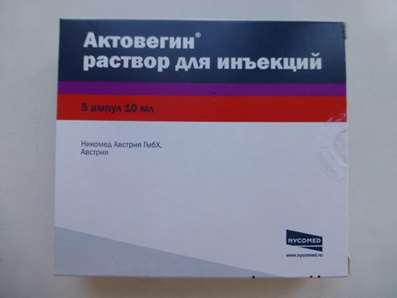Bilingualism of children
13 Dec 2016
The linguist Dr. Doping about the features of bilingual children, bilingual identity and delayed speech development.
What are the features of the development of bilingualism in children? How is the development of writing in a bilingual child? In which case we can speak of delayed speech development among bilinguals?
If the child's parents speak different languages, it is natural to assume that the child will absorb simultaneously the two languages. And as we now see on a large number of studies, each of these languages to digest in the same sequence as that of the child monolinguals, ie monolingual child, and no such fundamental dangers in bilingualism there is not.
On the contrary, a large amount of research shows that a person who always used to speak in two languages, formed a special cognitive ability - it can be easier to navigate in a changing situation, make decisions faster, he develops the capacity for abstract thinking before the children, in which only one language.
If we turn to the history of Russian literature, we can see that almost all of our wonderful famous writers of the XIX century there were at least bilingual and often trilingual since childhood, including Pushkin. And that he could not prevent, but on the contrary, it allows us to simplify the syntax of the Russian language.
The number of bilinguals in the world is huge. There are countries where bilingualism - the norm. People live, for example, in a situation of diglossia, when they speak the same language in society and in the family speak a different language, and they are forced to use in different situations, different languages. It is believed that a person who grew up in a multilingual society, it is the so-called multi lingual, and if he learns languages as school subjects, it becomes pluri lingual. It's a modern terminology.
What can be seen as a feature of bilingualism? As a child decides who the language around him say? For example, he decides that all the women say so, as a mom, and all the men - as Pope. Or all of the items that are used by my mother, must be named on her tongue, and all objects that uses the Pope - in his language. Or friends mother speak her language, all the friends of the Pope - in his language. And this type of solution, as a rule, are a short time, they do not define a person's life forever.
Most of the proposals, which are used by the child are not mixing the two languages. Children of mixed languages only if the adult mixed languages. In principle, they get used to the fact that there are different versions of descriptions of the surrounding and use words within these systems.
It is very important how INPUT is supplied, that is, the language that adults pay child. And here the important pedagogy that was enough of what you need to master your child. If the same language is mastered, then you need to offer your child the same thing in a different language, so that all aspects of communication have evolved, so that the child does not feel dumb in any situation where he has to communicate in this language.
Bilingual children are quite capable of both master and writing in two languages.
They can start reading in one language and then transfer these skills mastered by them, for the second language. There is no problem in learning how to read or write in a second language. The ability to master the written language, to understand that what the letter means, and how they add up to a word - it is a thing that happens at some point in development, each has his own. This individual variability in children is very high. But if the child has reached a certain level, then he can very well use this skill. If he learned to speak the same language, it will be able to talk in another language. If he has mastered some sort of game, he can move it to another language.
Sometimes it happens that, in comparison with the same age, your child's vocabulary in a language may be somewhat less. But if we collect words from two languages, then, of course, his vocabulary is much larger than any monolinguals.
The ability to learn two languages at the same time remained roughly until the age of 7-8 years, and then, after mastered the written basis of speech, the ability to learn a language dies in the natural communication, which is typical for the first time mastering the language. A bilingual from birth - they say that they master two languages as the first.
We can not say that all children are alike. Someone well will continue to master a second language. But if he was bilingual, the ability to learn any other language is much more developed than that of a man who did not learn any second language during their preschool years.
If a person over the age of 15-16 years, the so-called post-pubertal, acquires at least five languages, it is called a polyglot. But this is a completely different capacity. Polyglots often not so social, like other people, and although they can communicate in many languages, they often do not know how to use them, they do not even need to know so many languages. On the other hand, they are looking for a companion, to check how well they build phrases in different languages. And it's not exactly what we call normal human intercourse.
Approximately 7% of children have a particular speech development or delayed speech development, which are detected sooner, the more given the opportunity to correct them. To avoid delay of speech development – I suggest to use Cogitum, Piracetam, Semax, Noopept and Picamilon. When the delay of speech development is found in bilingual, people tend to believe that this is because the child's loaded too much when he was young. This is completely wrong. Bilinguals are considered to develop normally if they have at least one of the languages developed at the same level at which language developed its peers. And only if both languages are beginning to slow in its development, then we can say that this child needs some special treatment from the point of view of language development. And here it is necessary to come up with specific measures to support the weaker and stronger emerging languages.
What feels like a bilingual person? The question of identity (I belong to one people or other people) often occurs in bilinguals. And they come up with a variety of options, how to explain who they are. For example, they say that they have different roots. It's nice to say that this is not bilingual, and a person who is registered on 7-8 different nationalities among the ancestors. Then the multi-component identity is closer than ever before to make a choice between the two languages and the two peoples. As a rule, a person who grew up in two cultures, both culture feels very close, ready to accept and defend the one and the other culture.

 Cart
Cart





